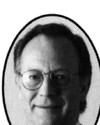Mr. Speaker, I am disappointed in the government's response to Motions Nos. 1, 69 and 25.
Motions Nos. 1 and 69 go a step further and add to the list of people for which there would not be any barriers to transportation. The act already talks about persons of disability and the motions would include elderly people.
There was some concern mentioned earlier about why we should include elderly people, that if they had disabilities they would surely be covered under that section. There is a grey area. People are living longer. They want to stay in their home communities rather than go to care facilities hundreds of miles away.
I know several elderly people who live quite active lives but their eyesight prevents them from driving. Sometimes they might even have difficulty renewing their drivers' licences. It is not that they are totally blind, it is not that they fall into the disabled category, but there is a need there. It is also a transportation need, particularly if their eyesight is not good enough to allow them to drive on the highways. They still have this tremendous need to go to other centres for medical services or to visit family members and so forth.
The amendment simply wished to spell out that elderly people should also be included in the grouping. If the government does not accept these motions, it will be because of the bureaucrats who do not like to see any changes to what they have proposed.
Motion No. 25 was introduced by our colleague from Saint John. She made excellent sense in presenting her case. I am again surprised the government has not listened to the legitimate concerns which are being expressed. Instead, it is listening to the
bureaucrats and ploughing ahead with what the bureaucrats have deemed, which is not what common sense would dictate.

